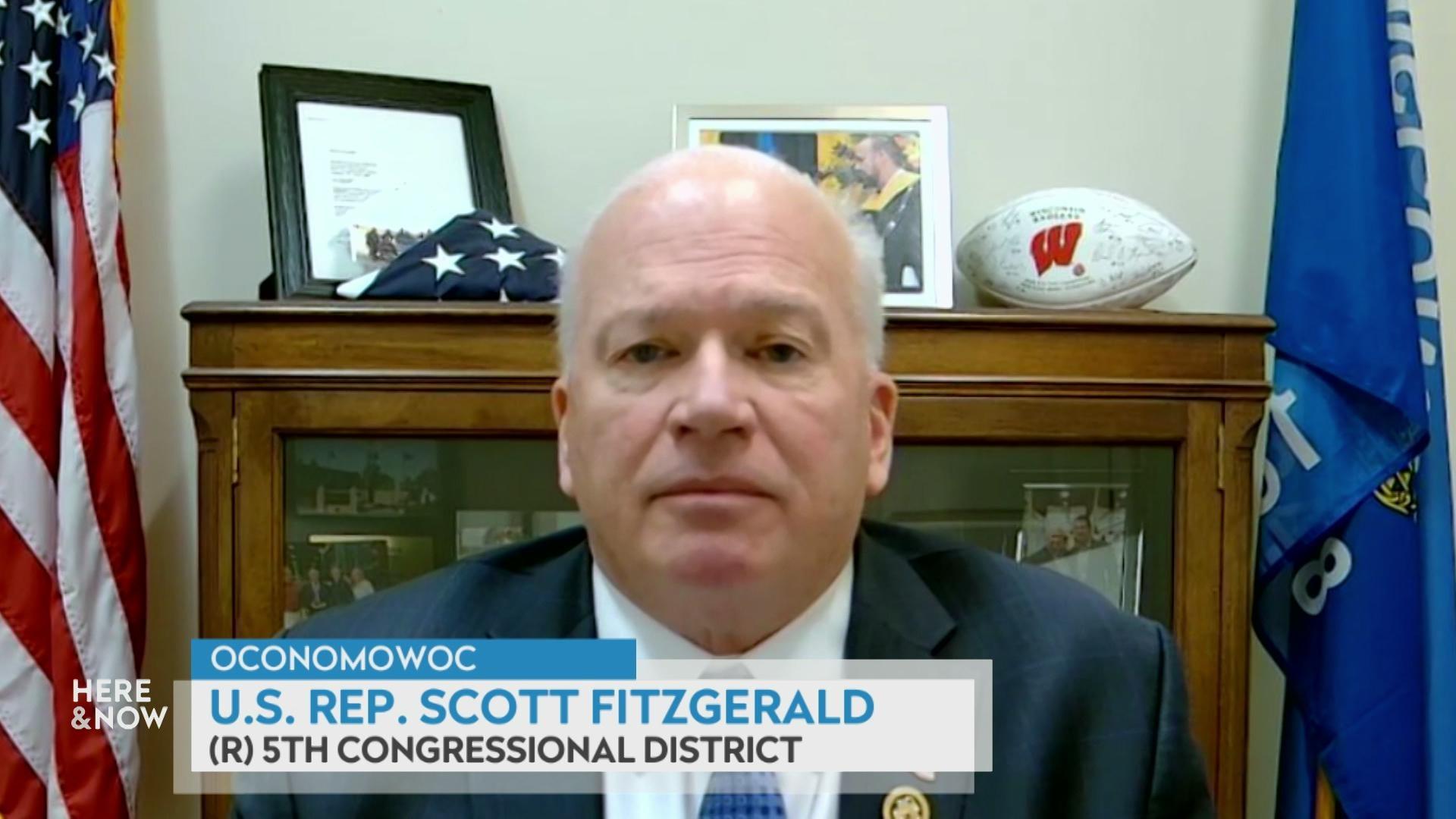Wisconsin Democrats adopt Bluesky as the social media landscape continues to split
The reelection of President-elect Donald Trump and his embrace by tech oligarch Elon Musk has accelerated an exodus among online liberals from the social media platform X to a startup named Bluesky, including by multiple Democratic officeholders in Wisconsin.
January 15, 2025

A variety of social media platforms, including Bluesky, TikTok and X, are displayed on a social media menu on a smartphone on Jan. 14, 2025. (Credit: Aditi Debnath / PBS Wisconsin)
It’s unusual for a new social media platform to find its footing in a landscape dominated by the likes of Facebook, Instagram, X and TikTok. In the wake of a contentious election year, a platform named Bluesky has grown rapidly, reflecting a growing partisan divide in the social media landscape, including in Wisconsin.
Bluesky is a “micro-blogging” platform similar to X, formerly named Twitter. X and Bluesky share a founder — Jack Dorsey — who was the CEO of Twitter at two points before technology industry centibillionaire Elon Musk bought the company for $44 billion in October 2022.
Five days after Musk closed the deal, Wisconsin U.S. Rep. Mark Pocan, a Democrat representing the 2nd Congressional District, posted on Twitter and asked followers if he should continue using the platform: “Now that Elon Musk apparently wants to dig the sewer deeper, do I keep my campaign account on here?”
Bluesky did not exist at that point, but Pocan’s concerns over the spread of misinformation following Musk’s acquisition echoed throughout the media landscape. As many as a million users deactivated their accounts over several months. Bluesky launched in February 2023, while Meta, the parent company of Facebook and Instagram, immediately began developing Threads, a microblogging rival that launched that April. Meanwhile, Twitter was rebranded as X in July.
These changes served as a prelude to the 2024 presidential election, when the victory of President-elect Donald Trump sparked the largest user exodus on X since Musk bought the platform in 2022. Ten days after the election, Pocan opened two accounts on Bluesky, an official account as a U.S. representative and a personal/campaign account. On the latter, he wrote, “Water seems less sewery here than X. Thanks for following.”
Within those 10 days, the number of unique, active accounts on the platform had more than doubled.
What prompted the Bluesky migration?
Bluesky is different from X in that it is a decentralized platform, which appeals to some users.
“With Bluesky, you can sort of engage in behavior that allows you to store data and kind of set your own rules,” said Michael Wagner, a UW-Madison journalism professor. “And so it’s not like you have to use servers that are owned by the company in the same way.”
Essentially, decentralized platforms offer users more privacy and less likelihood of centralized or algorithmic diminishment than platforms like Threads and X.
Wagner said another likely explanation for X users shifting to Bluesky isn’t the decentralized model, but content moderation.
“X is now a place where a lot of people who are more centrist and more liberal are leaving the platform as the content moderation has largely evaporated,” he said. “Evaporated as there’s more hateful content being shared, more misinformation being shared, and an increased preference in the algorithm for topics that Elon Musk personally cares about, including his own tweets.”
That leaves those that do not approve of Musk possibly seeking to leave X and stop engaging there, many of whom, like Pocan, are politically liberal or on the left, including a growing number of officeholders in the Democratic Party.
In addition to Pocan, other Wisconsin Democrats joined the platform within a month of the November 2024 election, including U.S. Rep. Gwen Moore of the 4th Congressional District and Gov. Tony Evers. Their actions were also within days of President-elect Trump’s announcement that Musk would join his administration as head of the “Department of Government Efficiency.” All three Democrats post on Bluesky and X, sharing nearly identical content, mere minutes apart on each platform.
U.S. Sen. Tammy Baldwin is the only federal-level Democrat in Wisconsin not on Bluesky as of mid-January 2025. Meanwhile, None of Wisconsin’s seven federal-level Republicans have joined the platform. The result is growing partisan polarization on social media, with Republican and Democrat users increasingly preferring different platforms. Wagner said this divide is especially evident when comparing Bluesky to Trump’s own microblogging platform Truth Social, which launched in February 2022 and has an estimated one million users as of early 2024.
“Two of the big stories of the 21st century are the increasingly fragmented media environment, and the greater degree to which we hold our political identities as closer to our personal identities,” Wagner said, “These two things are in a perfect storm when it comes to different social media platforms today, where where Truth Social is really a place, especially for fans of President-elect Trump, and Bluesky seems to be increasingly favored by Democrats.”
Within Wisconsin, Dane County Executive Melissa Agard, a Democrat and former Minority Leader of the state Senate, also created a Bluesky account shortly after the November election. She has encouraged all Dane County departments to join the app.
“I want people to know what it is that we are doing and have access to that information as easily as possible and as quickly as possible,” Agard said.
Agard’s announcement comes less than a year after former Dane County Executive Joe Parisi asked all county-level departments to stop using X by January 2024. He cited hate speech on X and concerns over the mental health of young people as his main reasons for dropping the platform.
One big question media experts are asking is whether the surge of Bluesky users was a temporary response to the 2024 election, or if it reflects a more permanent trend.
“Lots of people have moved to it and are trying it out,” said Wagner about Bluesky, “but that doesn’t mean they’ll stay.”
Bluesky’s surge in popularity is rapid, but not pervasive. When Meta’s Threads launched in July 2023, it surpassed 100 million users in the first five days of its launch. For comparison, Bluesky has a little more than 25 million users as of mid-January 2025, and is a long way away from competing with media giants like Meta and X.
TikTok’s continuing uncertainty in the social media landscape
The video-based social media platform TikTok far surpasses Bluesky and even X with its more than one billion active users worldwide, with about 60% of those users age 34 or younger.
TikTok is set to be blocked in the U.S. starting Jan. 19, unless the company’s lawyers can prevail in a case before the U.S. Supreme Court, arguing that banning the platform is a violation of free speech. This legal action comes less than a year after outgoing Democratic President Joe Biden signed into law a bill sponsored by former Wisconsin U.S. Rep. Mike Gallagher, a Republican who represented the 8th Congressional District, declaring TikTok to be a national security threat as long as it is owned by China-based company ByteDance.
Wisconsin’s congressional delegation is largely supportive of banning TikTok. Of Wisconsin’s eight U.S. House representatives, the only members to vote against Gallagher’s bill were Pocan and Moore. The proposal passed in the Senate as part of a sweeping $95 billion package which included providing aid to Ukraine, Israel and other U.S. allies. Democratic U.S. Sen. Tammy Baldwin voted in favor of that package, while Republican U.S. Sen. Ron Johnson voted against it.
In anticipation of the looming ban, TikTok users in the United States are flocking to a similar Chinese social media platform named Xiaohongshu, to show the U.S. government that they do not share its concerns over TikTok’s ties to China. In just a matter of days, Xiaohongshu has become the top downloaded free app on Apple’s App Store in the U.S., with American users using hashtags like #tiktokrefugee to connect with others who have joined the platform, which they call “RedNote.”
While several U.S. Supreme Court justices seemed skeptical of TikTok during their questioning in court on Jan. 10, there is uncertainty over how the court will handle the case. President-elect Donald Trump, who has opposed the TikTok ban but has subsequently shifted his stance on the issue, is taking office a day after the Jan. 19 deadline.
 Passport
Passport











Follow Us